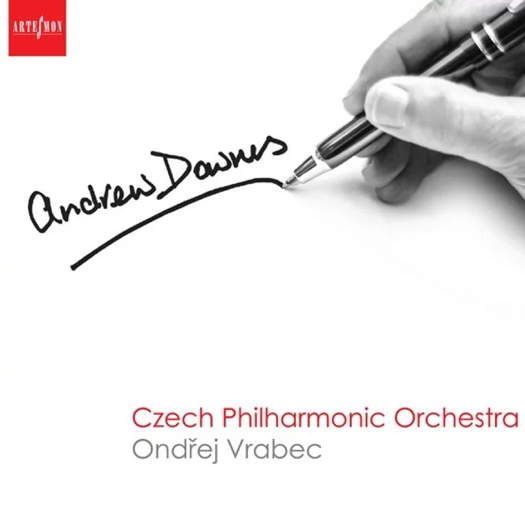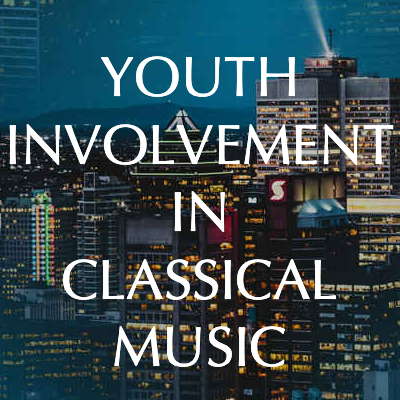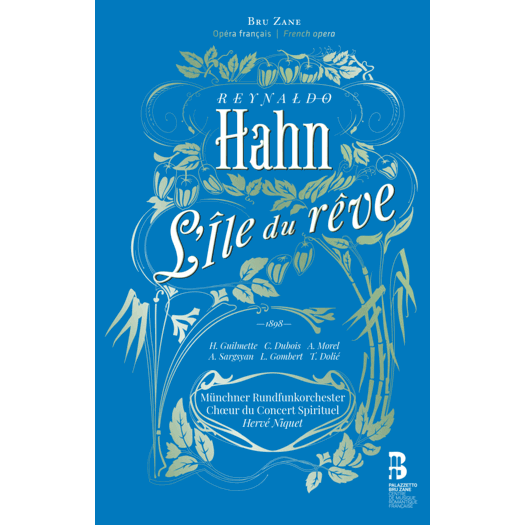 SPONSORED: CD Spotlight. On Buoyant Form - Orchestral music by Andrew Downes, heard by Roderic Dunnett.
SPONSORED: CD Spotlight. On Buoyant Form - Orchestral music by Andrew Downes, heard by Roderic Dunnett.
All sponsored features >>
 VIDEO PODCAST: John Dante Prevedini leads a discussion about Youth Involvement in Classical Music - this specially extended illustrated feature includes contributions from Christopher Morley, Gerald Fenech, Halida Dinova, Patricia Spencer and Roderic Dunnett.
VIDEO PODCAST: John Dante Prevedini leads a discussion about Youth Involvement in Classical Music - this specially extended illustrated feature includes contributions from Christopher Morley, Gerald Fenech, Halida Dinova, Patricia Spencer and Roderic Dunnett.
 WORD SEARCH: Can you solve Allan Rae's classical music word search puzzles? We're currently publishing one per month.
WORD SEARCH: Can you solve Allan Rae's classical music word search puzzles? We're currently publishing one per month.

A Polynesian Idyll
The first recording of Reynaldo Hahn's opera 'L'île du rêve', heard by GIUSEPPE PENNISI
'... singers, orchestra and chorus are top notch.'
For several months, soprano Diana Damrau and harp virtuoso Xavier de Maistre have circuited a concert of lieder and harp in several theatres and concert halls: I reviewed it here on 10 September 2019. The program included songs by Reynaldo Hahn (1874-1947), a Venezuelan-born naturalized French composer. This magazine and its predecessor have published reviews of recordings containing his music. Nowadays, he is known mostly for his mélodies and as a music organizer during the first half of the twentieth century. The Palazzetto Bru-Zane - Centre de musique romantique française has been at the forefront in rediscovering him. Last year a four CD book was published with all his melodies and today, on 23 October 2020, the first recording of his opera L'île du rêve reaches the record stores. The recording was carried out in Munich in the Prinzregententheater, where two concert performances of the opera were staged in January 2020. The brisk and accurate Hervé Niquet conducted the Müncher Rundfunkorchester. The French Chœur du Concert Spirituel was the chorus. Two stars of international standing, Hélène Guilmette and Cyrille Dubois, were the protagonists. In the other roles were Anaïk Morel, Artavazd Sargsyan, Ludivine Gombert and Thomas Dolié.
Before discussing the CD, a few lines about Hahn and the opera he composed when he was only seventeen years old and studying under Jules Massenet. Hahn's family moved to Paris when he was three years old. Although he showed interest in his native music of Caracas in his youth, France would determine and define Hahn's musical identity in later life. A child prodigy, Reynaldo made his debut at the salon of the eccentric Princess Mathilde - Napoleon's niece, accompanying himself on the piano as he sang arias by Jacques Offenbach. At the age of eight, Hahn composed his first songs. He entered the Conservatory at the age of ten.
Like many other French song composers of the time, Hahn was attracted to Victor Hugo's poetry. Many of the hallmarks of Hahn's music are already evident in 'Si mes vers': the undulating piano accompaniment, the vocal line derived from the patterns and intimacy of speech, the surprising intervals and cadences, the cleverly placed mezza voce and the sophistication and depth of feeling - all the more impressive because he was only thirteen when he composed it. He was appreciated by his teachers very much but he could not compete for the much sought Prix de Rome because he was a foreigner - he acquired French citizenship in 1909. Furthermore, he was half Jewish - those were the years of L'affaire Dreyfus; in France anti-Semitism had often been breeding.
The short three-act opera, lasting about an hour, is based on a novel by Pierre Loti, the pen name of a naval officer, traveller and writer who explored especially the Far East. At that time, the distant orient was a subject of novels, plays, operas and visual arts. Young Reynaldo Hahn was as attracted to that atmosphere as anybody. The opera had its debut at the Opéra Comique on 23 March 1898. It had good reviews but only nine performances. It did not help that the composer was an adolescent Venezuelan with Jewish family connections. The opera was revived in Cannes in 1942 where Hahn was music director of the Casino as a refugee in the French Free Zone. The work was staged again in far distant Papatee in 2000 and in 2016 in Rochefort and in the Théâtre de l'Athénée in Paris. Hahn obtained his much desired job of Director of the Paris Opéra after the liberation in 1945 but died two years later due to a brain tumor.
The plot is a simple Polynesian idyll of the wedding of the much travelled Loti with the Princess Mahénu. There are a few complications because the princess has a ridiculous Chinese suitor, Tsen-Lee, and more significantly, she cannot leave the island of dreams with her husband without breaking an enchantment. Thus, the lovers must part without saying farewell.
The interesting feature is that in the score there is more Debussy and more Puccini than Massenet. Colours reminiscent of Debussy can, for instance, be found in the introduction to the magic island, as well in the duet at the end of the first act and in the prelude and chorus of the third act.
Listen — Reynaldo Hahn: Ô pays de Bora-Bora (L'Île du rêve Act I)
(track 1, 0:02-0:57)
© 2020 Palazzetto Bru Zane - Centre de musique romantique française :
Listen — Reynaldo Hahn: Restons encor ... (L'Île du rêve Act I)
(track 7, 0:00-0:46)
© 2020 Palazzetto Bru Zane - Centre de musique romantique française :
Echoes of Puccini can be found in three passionate duets.
Listen — Reynaldo Hahn: Amis, voilà le salon ... (L'Île du rêve Act I)
(track 4, 0:15-0:53)
© 2020 Palazzetto Bru Zane - Centre de musique romantique française :
I do not know whether at that time young Hahn was familiar with Manon Lescaut; the score was published by Ricordi in 1893. I found records of performances of the opera in Belgium but not in Paris before the composition of L'île du rêve.
Throughout L'île du rêve there is both sensuality and the dream of a primitive but magic world.
As always in this collection, produced by Palazzetto Bru-Zane - Centre de musique romantique française, singers, orchestra and chorus are top notch.
Will there be a revival of L'île du rêve? It would be perfect in a small theatre, like Teatro Palladium in Rome where projections of Gaugin paintings would provide the ideal low cost sets.
Meantime, we can listen to this little jewel by an adolescent, probably in love and with an erotic explosion.
Copyright © 23 October 2020
Giuseppe Pennisi,
Rome, Italy

CD INFORMATION - REYNALDO HAHN: L'ÎLE DU RÊVE
FURTHER INFORMATION: REYNALDO HAHN
FURTHER INFORMATION: PALAZZETTO BRU ZANE
FURTHER ARTICLES ABOUT VENEZUELA


